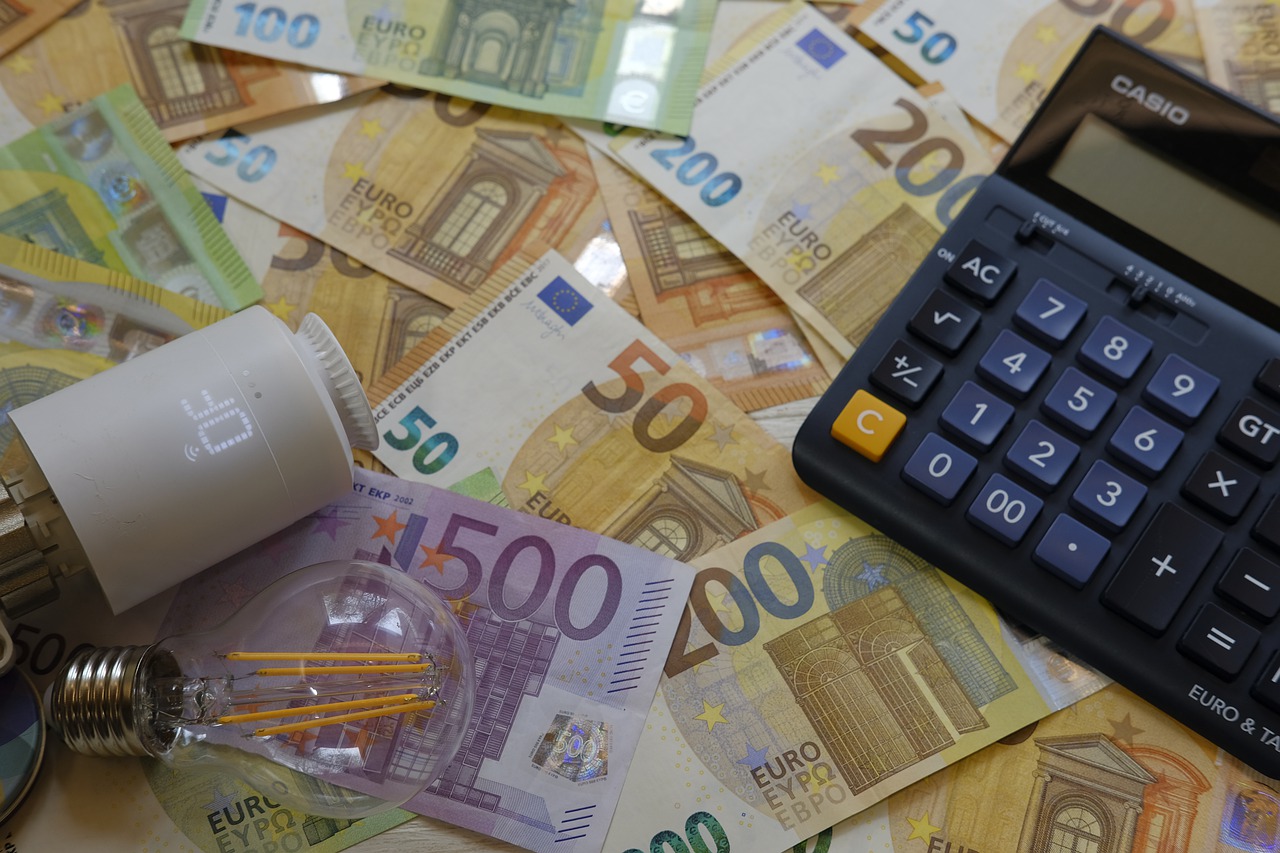Unlocking the Mysteries of IBAN Numbers: Everything You Need to Know for Secure and Efficient Payments!
GPT_Global - 2024-05-23 18:30:12.0 402
What happens if I enter the wrong IBAN number when making a payment?
When making a payment through a remittance business, it is crucial to ensure that the correct IBAN number is entered. An IBAN (International Bank Account Number) is a unique identification code used for international bank transfers. If the wrong IBAN number is entered when making a payment, several things can happen.
The first possibility is that the payment will be rejected. This happens if the incorrect IBAN belongs to a non-existent account or if the account holder's name does not match the one entered during the payment process. In this case, the remittance business will inform the sender that the transaction could not be completed, and the funds will be either returned or held until further action is taken.
In some cases, the payment may still go through even with the wrong IBAN number. However, this will depend on the bank's policy and the accuracy of the entered information. If the IBAN belongs to a valid but different account, the money will end up in someone else's account, and it may be challenging to retrieve it. This mistake can be particularly problematic if the recipient is not known to the sender.
If the payment goes through, but the IBAN belongs to an account in another country, the transfer will most likely incur additional fees. This is because the transfer will be treated as an international transaction, and the receiving bank will convert the amount into the local currency. There may also be delays in the transfer due to the extra steps involved.
Therefore, it is crucial to double-check the IBAN number before submitting a payment through a remittance business. If you are unsure of the correct IBAN, it is best to contact the recipient or their bank for the accurate information. Moreover, it is essential to provide all the necessary details, such as the recipient's name and address, to avoid any errors. Taking these precautions can save time and money, ensuring a hassle-free and successful transfer through a remittance business.

Are there any alternative methods of payment besides using an IBAN number?
Alternative Methods of Payment for Remittance Business
In today's increasingly globalized world, remittance has become an integral part of many people's lives. With the rise of digital payments and online transactions, there are now alternative methods of payment available for remittance aside from using IBAN numbers.
One such method is through mobile money transfers. This allows individuals to transfer money directly from their mobile phones to the recipient's mobile account. It is a convenient and efficient way to send money, especially for those who live in remote or underbanked areas. Some popular mobile money transfer services include M-Pesa, Venmo, and PayPal.
Crypto remittance is also gaining popularity as an alternative method of payment. Cryptocurrencies like Bitcoin and Ethereum allow for fast and secure cross-border transactions with minimal fees. This is especially beneficial for those who want to avoid the high fees associated with traditional remittance methods.
Another option is prepaid debit cards. These cards can be loaded with funds and sent to the recipient, who can then withdraw the money from an ATM or use it for purchases. This method is ideal for individuals who do not have access to a bank account.
Social media platforms are also offering remittance services. Facebook, for example, has introduced a feature called Facebook Pay, which allows users to send money to friends and family through its app. This could be a viable option for those who are already active on social media and prefer to use familiar platforms for financial transactions.
With these alternative methods of payment, individuals can now choose the most convenient and cost-effective way to send money. However, it is essential to consider the exchange rates and fees involved in each method before making a decision. As the world continues to advance technologically, we can expect even more innovative solutions for remittance in the future.
Can I use an IBAN number to transfer money between different banks?
In today's global economy, it is common to transfer money between different banks in different countries. With the rise of international businesses and digital solutions, remittance has become an essential part of our financial transactions. One question that often arises when it comes to transferring money between banks is whether IBAN numbers can be used for this purpose.
First and foremost, it is important to understand what exactly an IBAN (International Bank Account Number) is. This is a unique code that is assigned to each bank account in participating countries, including most European countries, the Middle East, and parts of Africa. It is primarily used for transfers between banks in different countries.
When it comes to using an IBAN number for remittance, the answer is yes. In fact, IBAN numbers were specifically created to simplify and streamline the process of international money transfers. By using IBAN numbers, banks can easily identify the recipient's bank account and ensure that the funds reach the correct destination.
Moreover, using IBAN numbers for remittance also ensures faster and more efficient transactions. Since the code contains all the necessary information about the recipient's bank and account, there is no need for additional verification or manual processing. This significantly reduces the chances of errors and delays.
However, it is important to note that not all countries use IBAN numbers for their bank accounts. For instance, the United States and Canada primarily use SWIFT codes for international transfers. In such cases, it is recommended to check with your bank regarding the required information for the specific country you are sending money to.
In conclusion, IBAN numbers can be used for remittance between different banks, making it a convenient and reliable option for international money transfers. With its standardized format and automated processing, it has become an essential tool in the world of global finance.
How do I know if an IBAN number is correct?
As a remittance business, ensuring that you have the correct International Bank Account Number (IBAN) is crucial. This unique code is used to identify bank accounts in international transactions, making it necessary for any cross-border transfer. So how do you know if an IBAN number is correct?
First, ensure that the IBAN you have is the correct length. Each country has a specific format for IBAN numbers, which typically ranges from 15 to 34 characters. If the number you have is too long or too short, then it is most likely incorrect.
Next, check the first two letters of the IBAN. These two letters represent the country code and should match the country where the account is located. If they do not match, then the IBAN is likely incorrect.
The next set of numbers is the check digits, which are calculated based on a specific algorithm to help detect errors. These numbers must be exact for the IBAN to be considered correct.
Finally, verify the rest of the numbers in the IBAN. The last set of digits indicates the bank and account number of the recipient. Ensure that these numbers match the information provided by the recipient to ensure accuracy.
If you are still unsure whether the IBAN is correct, you can use online tools or ask for assistance from your bank. Having the correct IBAN is crucial for successful and secure remittance transactions. Make sure to double check before initiating any transfer to avoid delays or lost funds.
Are there any restrictions on using an IBAN number for payments?
The IBAN (International Bank Account Number) is a unique identification number used for international bank transfers. It is widely used by businesses and individuals for remittance purposes, allowing for faster and more secure cross-border transactions.
One of the main advantages of using an IBAN number for payments is that it eliminates the need for multiple bank accounts in different countries. With an IBAN, all transactions can be done through one account, simplifying the process for both the sender and the receiver.
While IBAN numbers are widely accepted for international payments, there may be some restrictions depending on the country or institution involved. For example, some countries may require additional information such as a BIC (Bank Identifier Code) or SWIFT (Society for Worldwide Interbank Financial Telecommunication) code to complete the transaction.
Additionally, not all banks and financial institutions are connected to the IBAN network, which could cause delays or higher fees for the transfer. Before using an IBAN number for payments, it is important to confirm that the receiving bank or institution accepts it.
Another restriction to consider is the maximum amount that can be transferred using an IBAN number. This varies depending on the country and the institution, and it is important to check with both the sending and receiving parties to ensure that the desired amount can be transferred.
In conclusion, while there are some restrictions on using an IBAN number for payments, it remains a widely accepted and efficient method for international remittance. As with any financial transaction, it is important to research and confirm all details beforehand to ensure a smooth and secure transfer of funds.
Can I pay someone using their IBAN number without having their bank account details?
IBAN numbers, or International Bank Account Numbers, are used to identify bank accounts in certain countries. These numbers consist of a country code, check digits and the individual's bank account number. One may wonder if it is possible to pay someone using their IBAN number without having their bank account details. The answer is yes, if you use a remittance service.
Remittance services are commonly used for international money transfers. These services allow individuals to send money to another person or business in another country. They make use of the IBAN number to identify the recipient's bank account. In order to use these services, you will need to provide your own bank account details and the recipient's IBAN number.
Once you have provided the necessary information, the remittance service will facilitate the transfer of funds from your account to the recipient's account. This process can usually be done online, making it convenient and hassle-free. However, it is important to note that there may be fees associated with using a remittance service, so it is best to compare rates before deciding on a service to use.
It is also worth mentioning that some remittance services allow you to pay using a debit or credit card. In this case, you may not even need to know the recipient's IBAN number as the service will handle the transfer on your behalf. However, this option may also come with additional fees.
In conclusion, it is possible to pay someone using their IBAN number without having their bank account details. Remittance services make this possible by using the IBAN number to identify the recipient's bank account. Just be sure to compare fees and choose a reliable remittance service for your international money transfer needs.
Are there any differences between an IBAN number and a routing number?
When it comes to sending money internationally, there are a few important numbers to know. Two of the most commonly used numbers are an International Bank Account Number (IBAN) and a routing number. While both numbers serve a similar purpose, there are some key differences between them.
Firstly, an IBAN is used for international bank transfers. It is a unique code assigned to a specific bank account and helps to identify the bank, country, and account number for the recipient. IBANs are used primarily in Europe and other countries that adhere to the International Organization for Standardization (ISO) standards for bank account identification.
In contrast, a routing number is used for domestic bank transfers within the United States. It is a nine-digit code that identifies the financial institution where the recipient's account is held. Routing numbers are used by banks and credit unions to process and track transactions.
Another difference between an IBAN and a routing number is their format. IBANs vary in length, ranging from 15 to 34 characters, depending on the country. Routing numbers, on the other hand, always consist of nine digits.
Finally, the purpose of these numbers also differs. An IBAN is primarily used for cross-border payments, while a routing number is used for domestic transactions. This means that if you are sending money to someone in another country, you will need their IBAN. If you are sending money within the United States, you will need their routing number.
In conclusion, while both an IBAN and a routing number serve as identifiers for bank accounts, they have distinct differences and serve different purposes. Knowing the difference between the two can help you make smooth and efficient international or domestic bank transfers through your remittance business.
About Panda Remit
Panda Remit is committed to providing global users with more convenient, safe, reliable, and affordable online cross-border remittance services。
International remittance services from more than 30 countries/regions around the world are now available: including Japan, Hong Kong, Europe, the United States, Australia, and other markets, and are recognized and trusted by millions of users around the world.
Visit Panda Remit Official Website or Download PandaRemit App, to learn more about remittance info.



